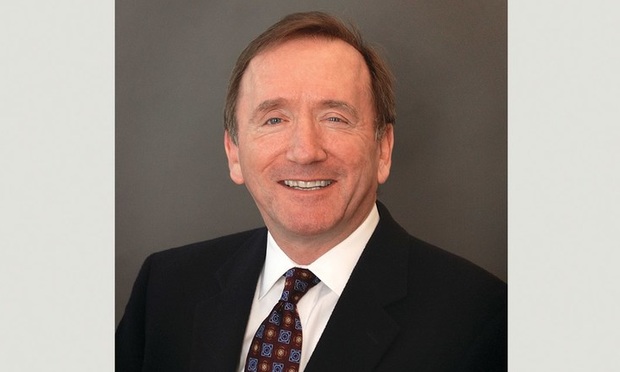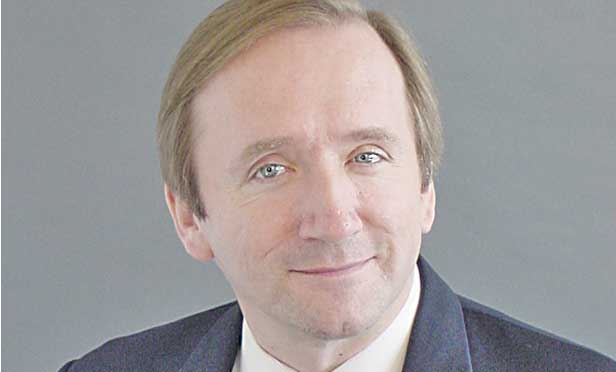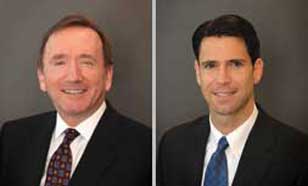Michael R Lastowski

April 01, 2020 | Delaware Business Court Insider
Partnership Loses Its Principal Asset, a Qui Tam Action, Upon Substituting a New Partner for an Old OneIn JKJ Partnership 2011 v. Sanofi-Aventis US, the Delaware Supreme Court, answering certified questions from the U.S. Court of Appeals for the Third Circuit, held that when a partnership replaced one of its original three partners with a new partner, the partnership dissolved.
By Michael R. Lastowski
5 minute read

June 19, 2019 | Delaware Business Court Insider
Chancery Grants a Receiver the Authority to Tax the Costs of a Receivership Against an Impecunious PetitionerFee shifting is always the exception, rather than the rule, and a party may reasonably expect that each party will bear its own costs. In receivership actions, the receivership will usually bear its own costs.
By Michael R. Lastowski
4 minute read

September 23, 2015 | Delaware Business Court Insider
Debtors Can't Sell Undersecured Creditor's CollateralUnder a common Chapter 11 scenario, a debtor and its prepetition lender agree to the filing of a Chapter 11 proceeding with the goal of selling the lender's collateral (either to a third party or to the lender) pursuant to 11 U.S.C. Section 363.
By Michael R. Lastowski
5 minute read

September 23, 2015 | Delaware Business Court Insider
Debtors Can't Sell Undersecured Creditor's CollateralUnder a common Chapter 11 scenario, a debtor and its prepetition lender agree to the filing of a Chapter 11 proceeding with the goal of selling the lender's collateral (either to a third party or to the lender) pursuant to 11 U.S.C. Section 363.
By Michael R. Lastowski
5 minute read

May 27, 2015 | Delaware Business Court Insider
Setoff and Recoupment in the Context of Section 503(b)(9) ClaimsIn In re ADI Liquidation, No. 14-12092, 2015 Bankr. LEXIS 1611 (Bankr. D. Del. May 5, 2015), the debtors filed a joint motion with a creditors' committee to reduce the allowed amounts of claims under 11 U.S.C. Section 503(b)(9), by asserting defenses of setoff and recoupment.
By Michael R. Lastowski
4 minute read

May 27, 2015 | Delaware Business Court Insider
Setoff and Recoupment in the Context of Section 503(b)(9) ClaimsIn, No. 14-12092, 2015 Bankr. LEXIS 1611 (Bankr. D. Del. May 5, 2015), the debtors filed a joint motion with a creditors' committee to reduce the allowed amounts of claims under 11 U.S.C. Section 503(b)(9), by asserting defenses of setoff and recoupment.
By Michael R. Lastowski
4 minute read

January 27, 2015 | Delaware Business Court Insider
Summary Judgment Granted in Favor of a Preference DefendantIn a preference action, one of the most common defenses is the so-called "ordinary course of business" (OCB) defense. Under 11 U.S.C. Section 547(c)(2), payments to a creditor may be shielded from preference liability if the creditor demonstrates that the payments were: (a) made in the ordinary course of the business between the debtor and the creditor (the subjective test) or (b) made according to ordinary business terms (the objective test).
By Michael R. Lastowski and Christopher M. Winter
4 minute read

January 27, 2015 | Delaware Business Court Insider
Summary Judgment Granted in Favor of a Preference DefendantIn a preference action, one of the most common defenses is the so-called "ordinary course of business" (OCB) defense. Under 11 U.S.C. Section 547(c)(2), payments to a creditor may be shielded from preference liability if the creditor demonstrates that the payments were: (a) made in the ordinary course of the business between the debtor and the creditor (the subjective test) or (b) made according to ordinary business terms (the objective test).
By Michael R. Lastowski and Christopher M. Winter
4 minute read

September 17, 2014 | Delaware Business Court Insider
Liability for Preferential Transfer May Be Reduced by Subsequent New ValueIn a preference action, one of the most common defenses is the so-called subsequent new value (SNV) defense under 11 U.S.C. Section 547(c)(4). Under Section 547(c)(4), to the extent that a creditor gives to the debtor new value subsequent to an avoidable transfer, the defendant's liability is reduced in the amount of such SNV.
By Michael R. Lastowski and Christopher M. Winter
4 minute read

May 21, 2014 | Delaware Business Court Insider
Justices Hold Fee-Shifting Bylaw Not Per Se InvalidThe Delaware Supreme Court has now opened the door for corporations, in the context of intra-corporate disputes, to avoid the so-called "American rule," under which each party bears its own costs regardless of which party prevails. Specifically, the court held that a corporation may adopt a bylaw provision that provides for fee-shifting similar to the so-called "English rule," under which a nonprevailing party must pay the fees and expenses of its adversary. While such bylaws are relatively rare, this recent decision will undoubtedly encourage corporations to adopt them. Time will tell whether the Supreme Court's decision will chill future shareholder litigation.
By Michael R. Lastowski and Christopher M. Winter
4 minute read
Trending Stories
- 1Rejuvenation of a Sharp Employer Non-Compete Tool: Delaware Supreme Court Reinvigorates the Employee Choice Doctrine
- 2Mastering Litigation in New York’s Commercial Division Part V, Leave It to the Experts: Expert Discovery in the New York Commercial Division
- 3GOP-Led SEC Tightens Control Over Enforcement Investigations, Lawyers Say
- 4Transgender Care Fight Targets More Adults as Georgia, Other States Weigh Laws
- 5Roundup Special Master's Report Recommends Lead Counsel Get $0 in Common Benefit Fees



